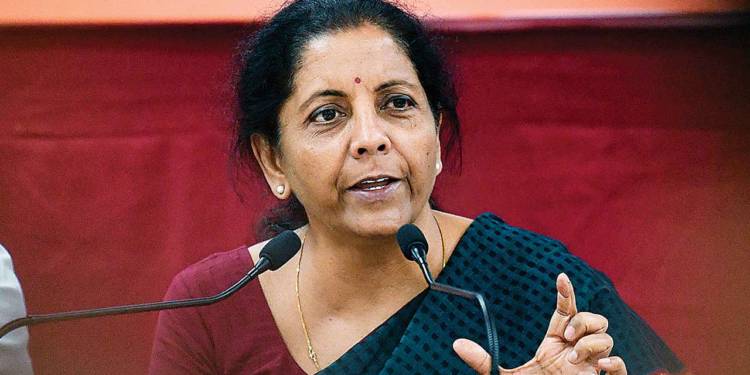There is a plethora of debate (informed and misinformed, lies and facts) going on the state of the economy of the country. To put an end to the lies, and encourage informed debate, Finance Minister Nirmala Sitharaman spoke for more than an hour in Rajya Sabha, on the track record of the first term of the Modi government, current state of the economy and the measures taken to bring back the ‘animal spirits of the economy’.
In Rajya Sabha, the Finance Minister spoke on ‘Short duration discussion on the economic situation of the country’ and pointed out that growth may have slowed down but there is no ‘recession’ and the country will never slip into recession. In her speech, she summed up the economic performance of the first Modi government, and also presented a sort of white paper on the economy.
She assured the lower house of the parliament, “Every step being taken is in the interest of the country… looking at the economy with a discerning view, you see that the growth may have come down, but its not a recession yet or it won’t be recession ever.”
Comparing the economic performance of UPA II (FY 09-14) with NDA2(FY 14-19), she said that the real GDP growth during the first term of Modi government was 7.5 per cent, compared to 6.4 per cent in the second term of UPA government.
Inflation, a big issue during the second term of UPA regime was brought down by the Modi government and monetary policy committee (MPC) has been given the target to keep inflation between 2 to 6 per cent.
Food Inflation under the first term of Modi government was 3.5 per cent, compared to 11.2 per cent during Manmohan Singh’s second tenure. Core inflation (headline inflation- food and fuel) was also substantially low compared to Manmohan Singh’s government.
Forex reserves increased from 304.2 billion dollars when Manmohan Singh’s government was ousted from power and increased to 450 billion dollars as of this month’s data. Under the Modi government, FDI inflow increased by more than 70 per cent, from 189.5 billion dollars to 283.9 billion dollars.
The external debt to GDP ratio declined from 23.9 per cent to 19.7 per cent during the first term of the NDA government. Gross remittance increased from 313 billion dollars during UPA II to 342 billion dollars in NDA2, that too, despite the global slowdown.
In the first six months of this fiscal year (1st April 2019 – Sept 2019), the government’s revenue increased by 18 per cent while revenue expenditure grew by 13 per cent, compared to the same period in last fiscal year. Capital expenditure also increased by 15.31 per cent in the same period.
The Modi government has tried to solve the twin balance sheet problem, which arose from the UPA government’s irresponsible PSB management. The government brought Insolvency and bankruptcy code to solve the Non-performing assets problem and many big cases have been resolved under the scheme. The government has also decided to bring down the number of PSBs to 4 from 10, through various mergers. The smaller number of PSBs will ensure better management.
She also slammed regressive taxation policy of UPA government and said, “…whoever brought in the MAT, I know it was brought in 1987 but 10 long years (UPA I and II) it was only aggravated rather than withdrawn, MAT which is seen even today a very very regressive tax.”
The Finance Minister pointed out that the Automobile sector has performed poorly due to Supreme Court’s order to BS-IV should be done away with and BS-VI should come into effect from 1 April 2020.
On the reforms taken to revive the economy, she said that 32 steps were taken pertaining to different sectors – are being reviewed weekly and showing results.
The Finance Minister has shut the mouth of the critics with comparative data about the second term of UPA and Modi government. She also discussed the current state of the economy, assured that there will be no recession and pointed out the steps taken to bring back the animal spirits of the economy.























